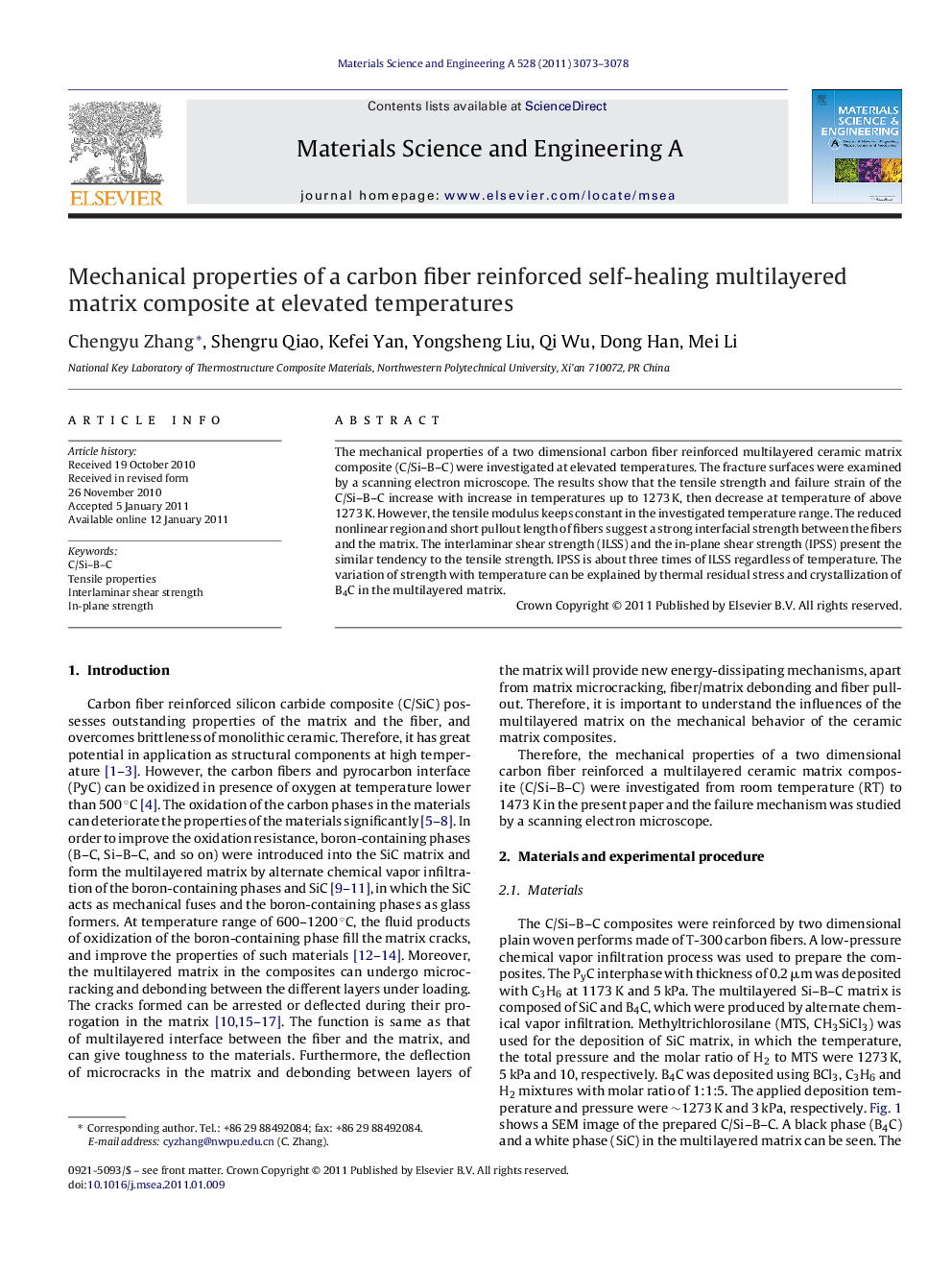| Article ID | Journal | Published Year | Pages | File Type |
|---|---|---|---|---|
| 1578509 | Materials Science and Engineering: A | 2011 | 6 Pages |
The mechanical properties of a two dimensional carbon fiber reinforced multilayered ceramic matrix composite (C/Si–B–C) were investigated at elevated temperatures. The fracture surfaces were examined by a scanning electron microscope. The results show that the tensile strength and failure strain of the C/Si–B–C increase with increase in temperatures up to 1273 K, then decrease at temperature of above 1273 K. However, the tensile modulus keeps constant in the investigated temperature range. The reduced nonlinear region and short pullout length of fibers suggest a strong interfacial strength between the fibers and the matrix. The interlaminar shear strength (ILSS) and the in-plane shear strength (IPSS) present the similar tendency to the tensile strength. IPSS is about three times of ILSS regardless of temperature. The variation of strength with temperature can be explained by thermal residual stress and crystallization of B4C in the multilayered matrix.
Research highlights▶ The tensile, interlaminar shear and in-plane shear strengths exhibited a significant dependency on the temperature. ▶ The debonding of the interface between the different layers in the matrix can arrest and deflect the cracks in the multilayered matrix. ▶ The thermal residual stress and the volume shrinkage caused by the crystallization of the boron-containing phase can contribute to the variation of strength with temperature.
